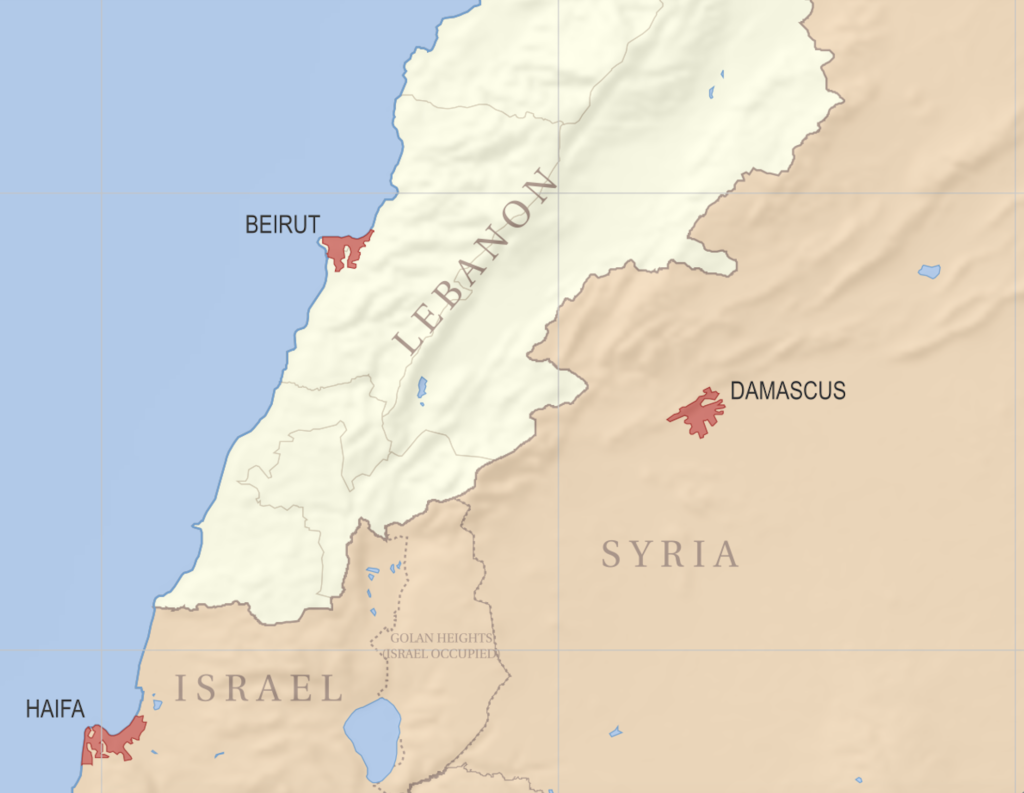Hezbollah Must not Give Israel a Pretext to Occupy South Lebanon
By: Ghassan Rubeiz / Arab America Contributing Writer

It seems that early on Tuesday, Israel started a ground invasion of Lebanon, aimed at neutralizing Hezbollah’s infrastructure and influence. Reports are not clear yet on the intensity and long-term plan of this operation. Israel has complex motives in trying to re-occupy resource-rich southern Lebanon.
Perhaps the most understandable rationale for the invasion is a humanitarian one. Some sixty thousand Israelis have been displaced from the area around the northern border for almost a year and are desperately waiting to go home. (A larger number of displaced Lebanese are also waiting for peace on the southern side of the border. In fact, south Lebanon’s communities have lost their security since the creation of the state of Israel).
The Israeli prime minister’s personal motives also play a role. In peacetime, Benjamin Netanyahu would be facing possible imprisonment for his record of corruption, his failure to prevent the October 7th attacks, and his genocidal conduct in Gaza. A victory over Hezbollah would probably guarantee his political safety.
The effectiveness of Israel’s recent attacks on Hezbollah’s leadership and its communities have also given Israel’s military commanders and political leaders the confidence to keep their aggression going, in order to neutralize any form of resistance to Israel’s expanding presence in the region.
The invasion is an attempt to seize the opportunity offered by increased US military presence in the Mediterranean: Netanyahu’s cabinet seems to want to draw both Iran and the United States into a decisive regional war by threatening Hezbollah with annihilation.
Developments are moving fast, and not in Lebanon’s favor. Hezbollah must quickly review its options and take action. Hezbollah’s new leadership could take this moment of deep vulnerability to rethink its domestic and regional political agenda in an attempt to draw broader support from Lebanese society. In order for the country to rally wholeheartedly behind Hezbollah and unite against the invasion, Hezbollah should first allow the national army and UNIFIL, the mandated United Nations Forces, to replace its own fighters in the border area. This compromise would serve communities on both sides of the border, and might ultimately lead to a ceasefire.
Secondly, Hezbollah should support the election of a capable and visionary president. Lebanese politics have been frozen for two years, and Hezbollah’s candidate, Suleiman Frangieh, does not share the country’s aspirations for justice and equality.
Finally, Hezbollah should start integrating its military arm with Lebanon’s national armed forces. Hezbollah could then become an ordinary political party and devote itself to advancing social and political causes.
Crises like this one can lead either to larger crises, or to solutions for the underlying causes. Regrettably, the current political climate is not conducive to rational problem solving: we must concede there is a chance the growing threats to Hezbollah may drive Lebanon into a new civil war. Conversely, this could also be a historical chance for all of Lebanon to rise to the occasion and form a common front against internal and external threats.
Ghassan Rubeiz is the former Middle East Secretary of the World Council of Churches. Earlier, he taught psychology and social work in his country of birth, Lebanon, and later in the United States, where he currently lives. For the past twenty years, he has contributed to political commentary and delivered occasional public talks on subjects related to peace, justice, and interfaith. You can reach him at rubeizg@gmail.com
The views and opinions expressed in this article are those of the author and do not necessarily reflect the position of Arab America. The reproduction of this article is permissible with proper credit to Arab America and the author.
Check out our Blog here!








